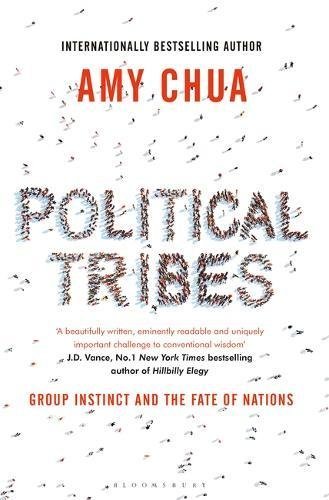
Political Tribes: Group Instinct and the Fate of Nations
Amy Chua
About the Author

Amy Chua
Questions & Answers
Amy Chua argues that democracy can exacerbate group conflicts by reinforcing existing tribal identities and divisions. She illustrates this with examples like the post-Cold War era in Iraq and Yugoslavia, where rapid democratization led to ethnic and religious tensions. In these countries, democratization allowed previously suppressed groups to gain political power, often leading to revenge against minorities or further violence. This pattern suggests that democracy is not a universal panacea for conflict resolution, especially in societies with deep-seated tribal divisions. The implications for global stability are significant, as the spread of democracy without considering tribal dynamics can lead to instability, violence, and even genocide, as seen in the examples Chua provides.
Ethnicity plays a pivotal role in political tribalism, serving as a fundamental basis for group identity and loyalty. It influences international conflicts and domestic politics in several ways:
-
International Conflicts: Ethnicity often underpins the root causes of conflicts, such as in the Vietnam War and the Iraq War. Misunderstanding or ignoring ethnic dynamics can lead to miscalculations and exacerbate tensions. For instance, the U.S. failed to recognize the ethnic Chinese minority's influence in Vietnam, while the U.S. and UK underestimated the tribal and sectarian divisions in Iraq.
-
Domestic Politics: Ethnic identity can drive domestic political dynamics, as seen in the U.S. and Venezuela. In the U.S., racial and ethnic identities contribute to political divisions and populism, with groups feeling threatened by perceived cultural and social changes. In Venezuela, President Chávez exploited ethnic and racial tensions to mobilize support.
-
Terrorism and Extremism: Ethnic identity can fuel terrorism and extremism, as seen with groups like ISIS. The belief in a shared ethnic or religious identity against a perceived enemy can radicalize individuals and lead to violence.
-
Democracy and Governance: In divided societies, democracy can exacerbate ethnic tensions, as political parties and movements often coalesce around ethnic identities. This can lead to increased violence and instability, as seen in the post-Cold War era in various regions.
In summary, ethnicity is a powerful force in political tribalism, influencing conflicts and political landscapes by shaping group identities, fueling tensions, and affecting governance and stability.
Chua critiques the American elite's understanding of democracy by highlighting their blindspot towards the group identities of ordinary Americans, particularly the white working class. She argues that the elite's view of democracy as a unifying force is flawed, especially under conditions of inequality. She points out that the elite misinterpreted the 2016 election results, attributing them to a desire for change among the "neglected group of white Americans," rather than acknowledging the role of inequality and white resentment. Chua suggests that the elite's color blindness and disregard for the cultural anxieties of the white working class contributed to their misjudgment of the election's outcome.
Identity politics in America has led to a fracturing of societal unity, with deepening divides between groups. It has intensified group competition, leading to zero-sum political tribalism, where the nation's identity and values are increasingly defined by exclusive group identities rather than shared principles. This has weakened the American Dream, which traditionally transcended racial, ethnic, and cultural differences. The rise of identity politics on both the left and right, with its focus on group-specific grievances and privileges, has undermined the nation's core values of equality, inclusivity, and mutual respect. It has also contributed to a toxic political environment where dialogue is difficult and compromise is rare, threatening the fabric of American society.
Amy Chua suggests several solutions to overcome political tribalism:
-
Understanding Group Dynamics: Individuals and societies should recognize the power of group identity and the tribal instinct. Understanding the psychological and social factors that drive group behavior is crucial.
-
Promoting Inclusive Identity: America's unique identity as a "tribe of tribes" should be celebrated and promoted. This means recognizing and respecting the diverse backgrounds of its citizens while fostering a strong collective identity.
-
Cross-Group Interaction: Encouraging face-to-face interactions between different groups can break down prejudices and build common ground. This is particularly effective in environments like the military, where shared goals and survival needs can transcend group differences.
-
Education and Awareness: Educating people about the dangers of tribalism and the benefits of diversity can foster empathy and understanding. This includes teaching about the history of different groups and the impact of group identity on political dynamics.
-
Inclusive Policies: Governments and institutions should adopt policies that promote equality and inclusivity, addressing systemic biases and ensuring that all groups have a voice in decision-making processes.
By implementing these solutions, individuals and societies can work towards overcoming the challenges posed by political tribalism and fostering a more cooperative and understanding environment.